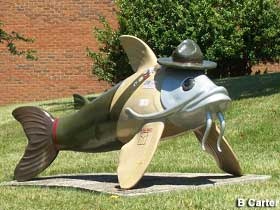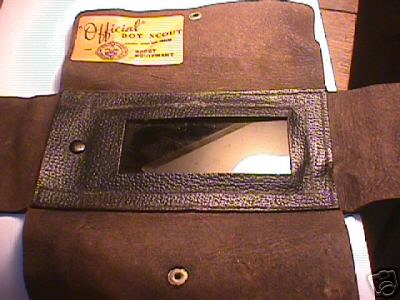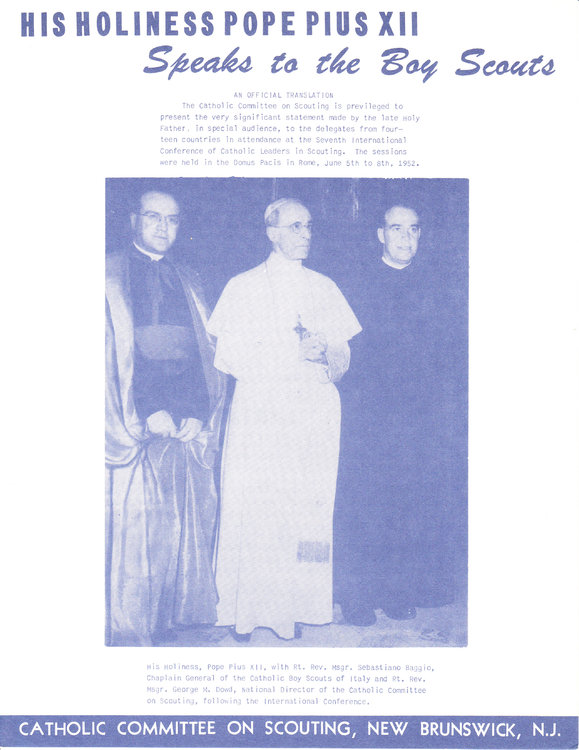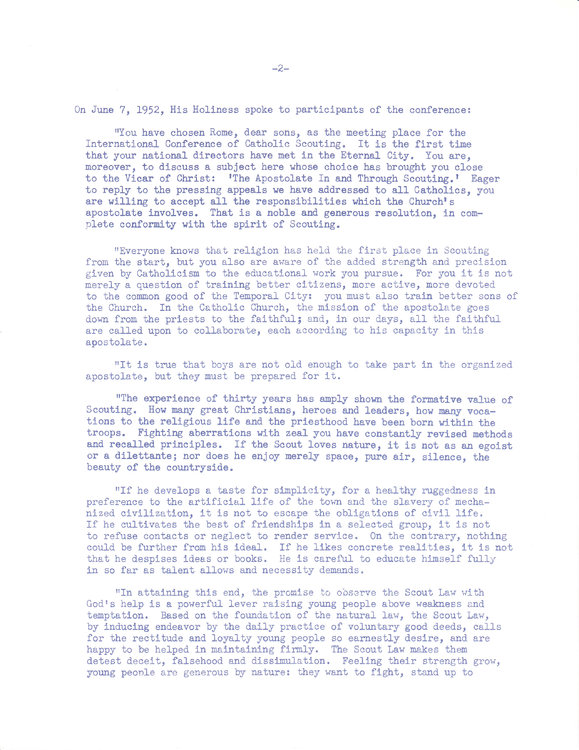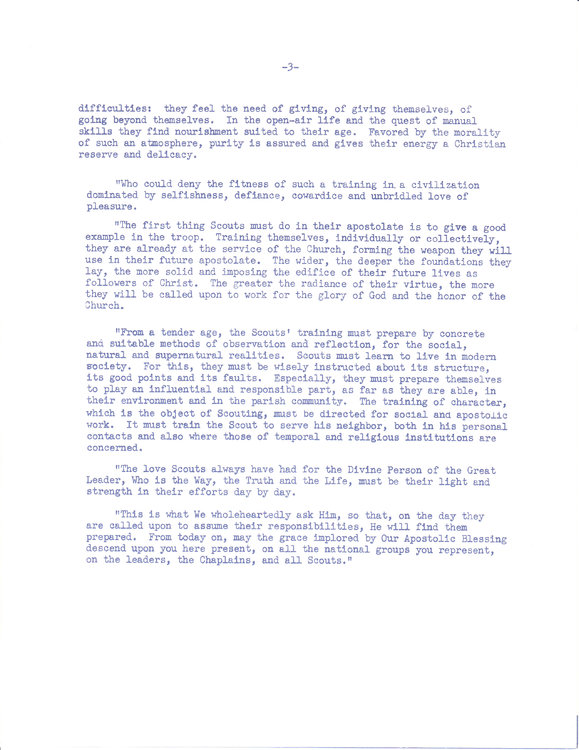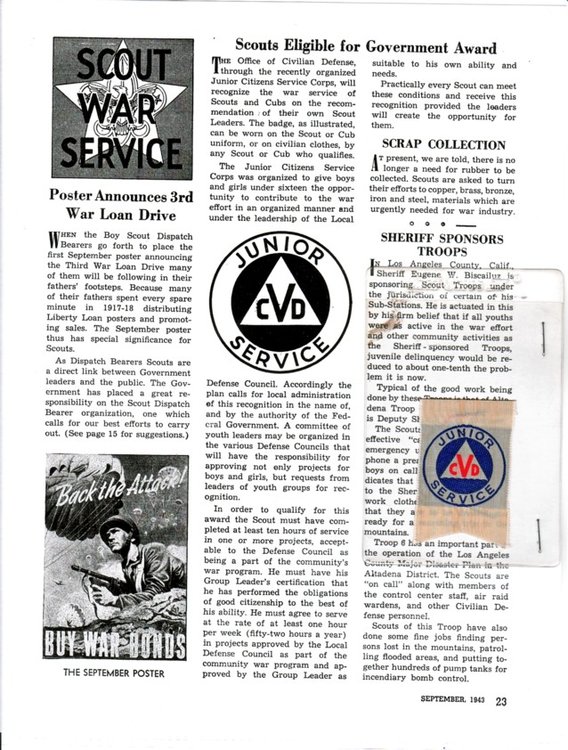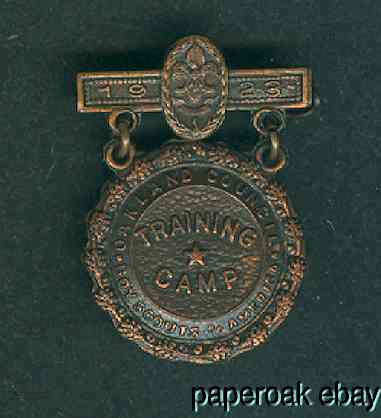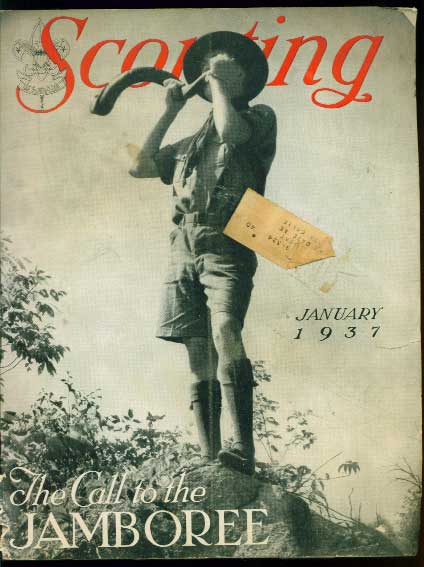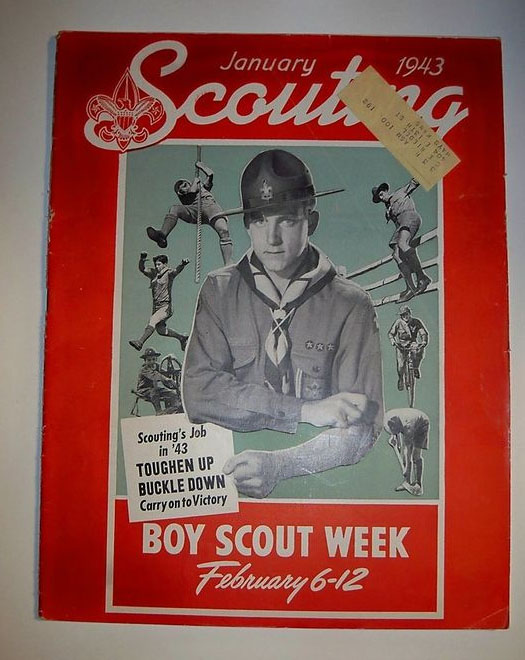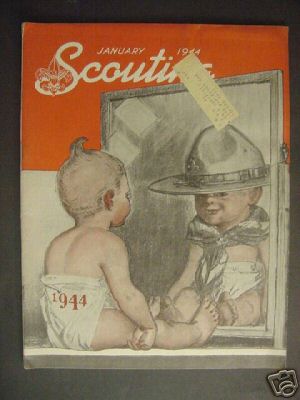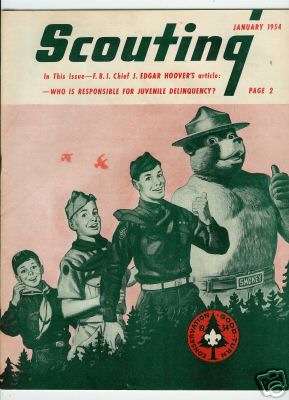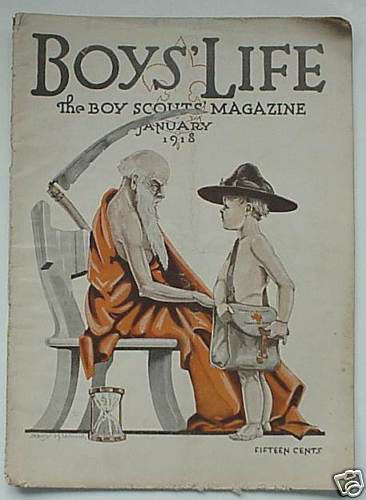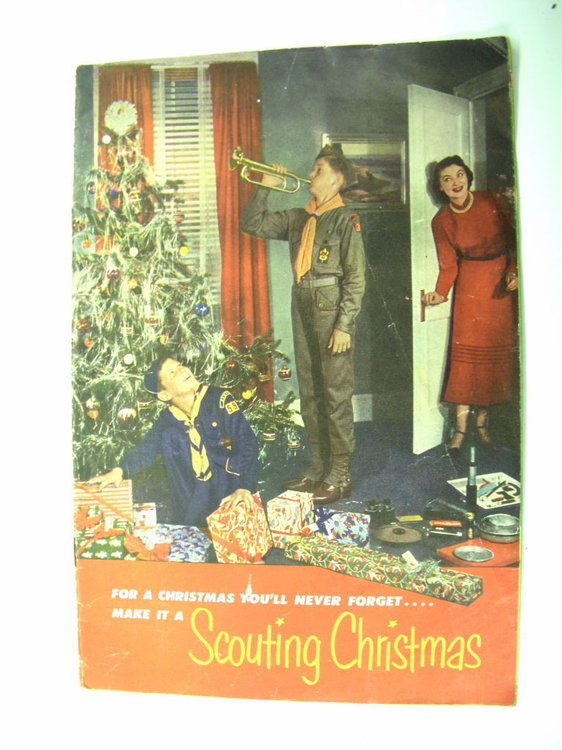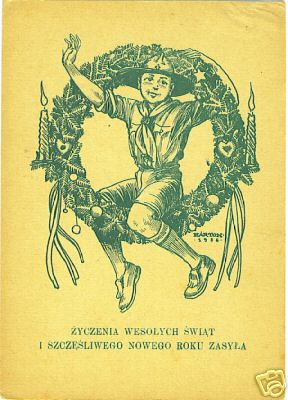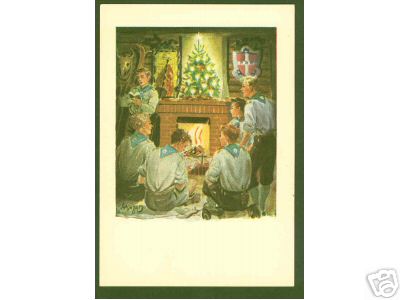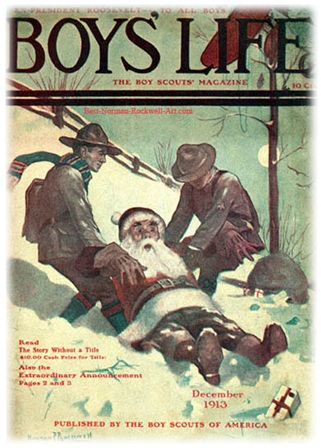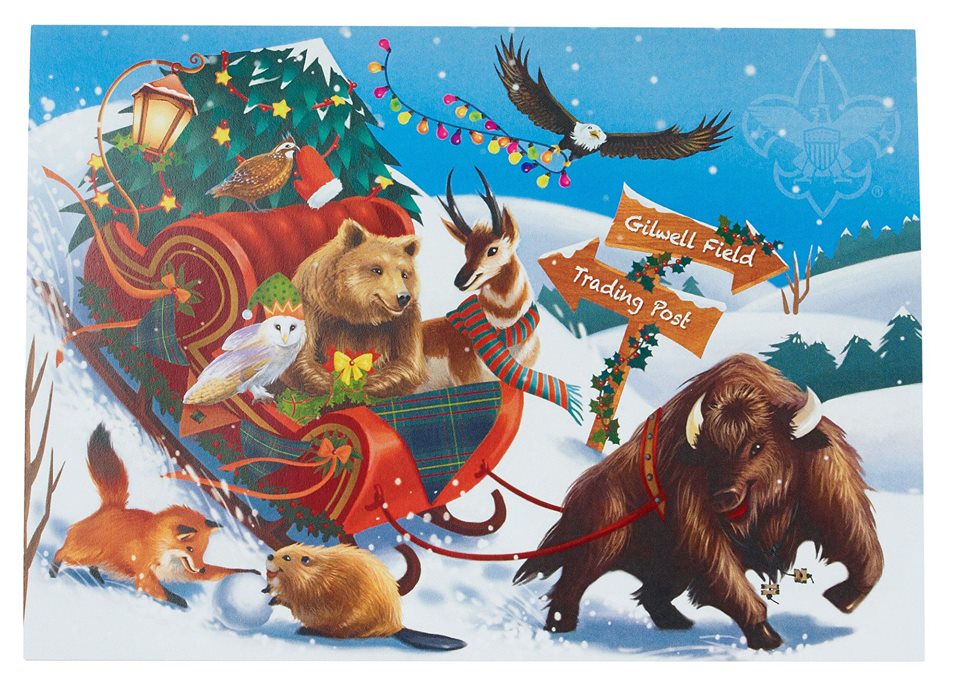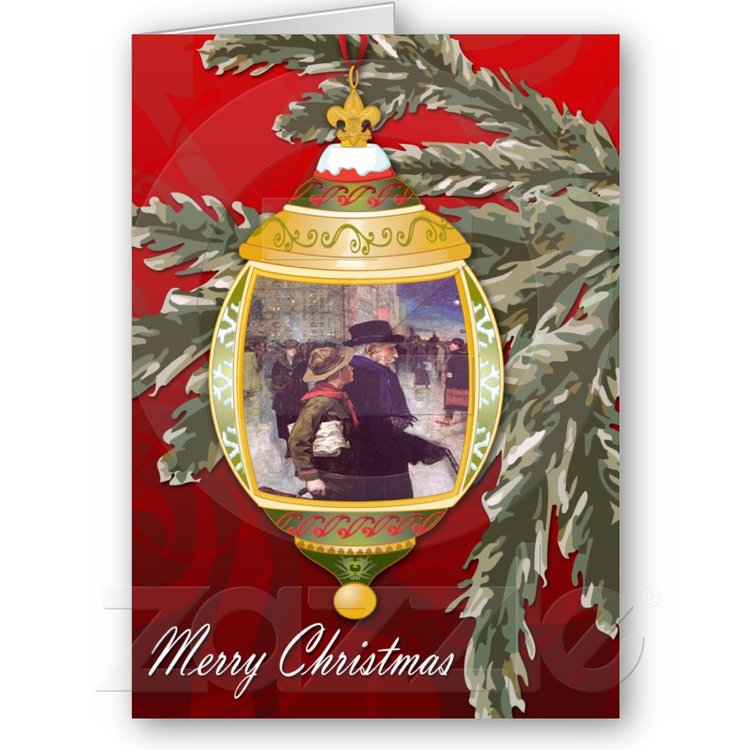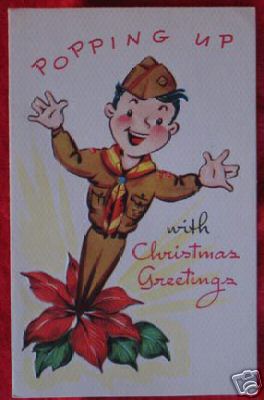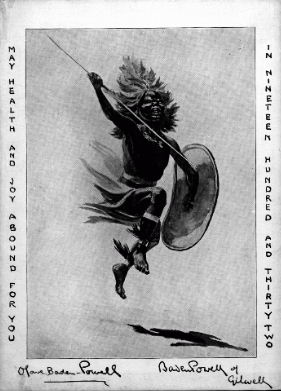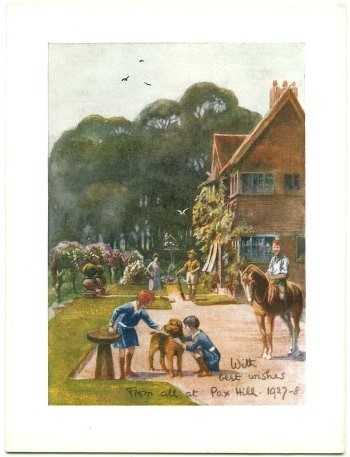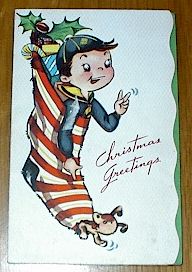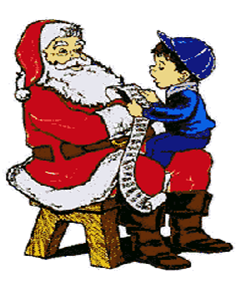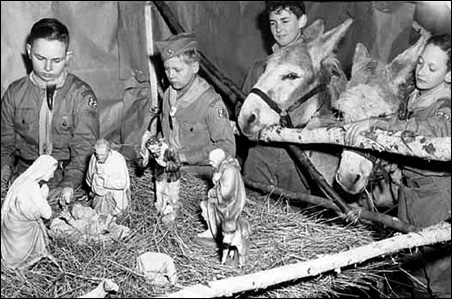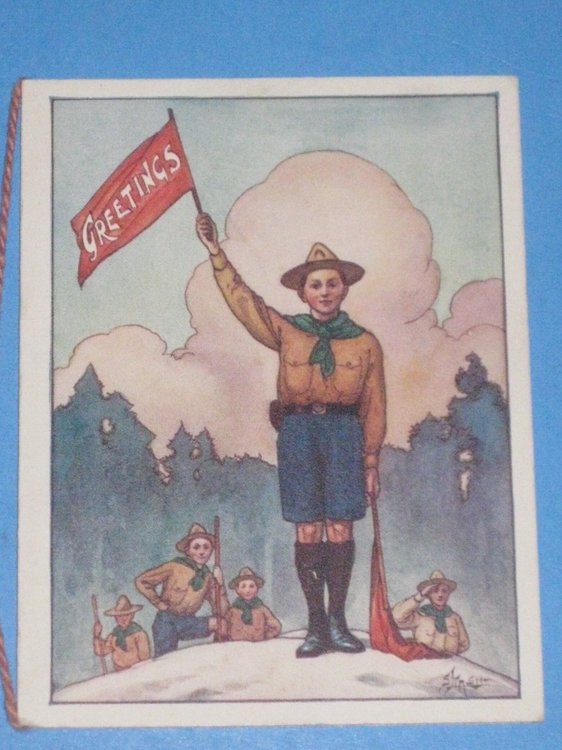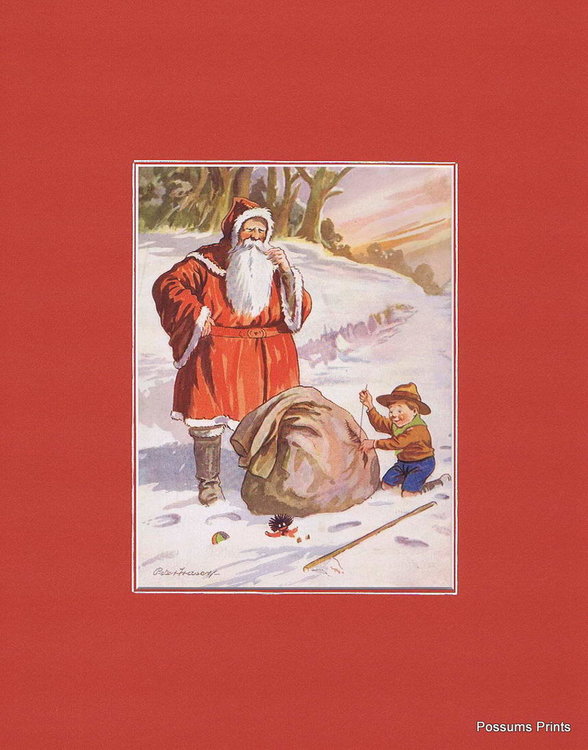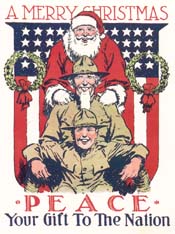-
Posts
3368 -
Joined
-
Last visited
-
Days Won
72
Content Type
Profiles
Forums
Articles
Store
Everything posted by skeptic
-
I have just finished reading my copy of HE-WHO-SEES-IN-THE-DARK, the story of Frederick Burnham written in 1932 by James E. West. Burnham was an American frontier scout who scouted with the British in Africa and worked with Baden Powell. The name in the title was given him by African natives with whom he intermixed while in Africa. Interesting work, and clarified much of my vague awareness of Burnham's place in Scouting lore. West writes in chapter 19, "The Sign of the Knot", how learning what seemingly are minor things, like basic knots, are far more important than one might think and how BP thought about it. "Baden-Powell, who had pondered long and delved deeply into the secret that lay beneath the miracles that the great scouts could perform (referring to those like Burnham, Boone, Carson, and Bridger, among others) found that their excellence, unromantic though it may seem, came from learning to do the simple everyday things in the most efficient and speediest way possible. There was a patient toughness in the preparations they made. Their dexterity came from reasoning and experiment to find the best method, and the constant practice to give them speed and sureness." West suggests that B.P. considered this of paramount importance in the later development from his military writing to material for his Scouting program. The Scouting connection aside, Frederick Burnham was a fascinating man. He apparently lived in Santa Barbara late in his life.
-

Buzzfeed - CSE Surbaugh - Girls - Scouter.com
skeptic replied to RememberSchiff's topic in Issues & Politics
-
IF this is actually the case, I suspect we might soon hear that it went away. No matter how strapped a council might be, they have clerical people to deal with advancement details, and Eagle boards do most of the preliminary verifications of dates and such in most councils. If they do not in this "council", then maybe they should. Total nonsense. By the way, there is a legitimate fee for processing in an expedited manner that is available, though even that may be covered by most units.
-

Buzzfeed - CSE Surbaugh - Girls - Scouter.com
skeptic replied to RememberSchiff's topic in Issues & Politics
Remember, lemons can be made into many tasty things as well as useful options such as air fresheners. So too can poorly designed programs, especially if done by those closest to the action. -
Since we are speaking of various scouting related books, I am finally getting around to actually reading a few of the lesser know ones I have. Yesterday I read My Boyhood in the Sixties and Seventies Murray, who was on the original executive board and wrote the first official history at the anniversary in 1935. It was put out in 1940 by BSA in his honor. Interesting, but short. He admits to some less than Scouting activities as a youth, but mentions that he hopes not too many would do similar things "today". He talks about his experiments with smoking, and says "we knew where babies came from", which made me chuckle. Today I started reading the book on Frederick Burnham written by West, He Who Sees in the Dark. Am about half through it and I learned a few things. One, that West was not a bad writer, though not on the level of the great authors. Maybe I will take up his Lindberg book next, or the one he wrote on the first world jamboree.
-
And the Biography of a Grizzly is also the only EBL in the format in which it is done. I read that was insisted on by Seton, but not sure why.
-
I discovered that my info is slightly inaccurate, as Rockwell did a couple of very early illustrations for two other books just prior to the Cave books, though they appear to have been just illustrations and not the myriad examples throughout the Scouting related books. Many of the drawings are simple line type and have his initials on them. Of course, that was when he was acting as Boy's Life art editor. He also did illustrations for a number of the Every Boy's Library volumes according to one researcher's details. There is little doubt in my mind that Rockwell's work had a very big influence on the public acceptance of the formative decades and the hay day of the fifties and sixties.
-
Another interesting thing about those two books is that they were the first books illustrated by Norman Rockwell. Do you have the individual books from 1913 and 1914 or the double with the two combined?
-
The one with the odd salute is the cover of an LDS magazine. So, it may have something to do with them. The card is actually British.
-
I am waiting for this forum's founder to write his biography of Bill. It would be great to add it to those of the other greats of our program. Also would like to find one on Robinson, even though he was more YMCA overall. His short-term assistance in those first few years were critical. Probably a few other pretty important names buried in those first couple of decades, but they tended to stay in the background.
-
I just finished reading a nice tribute in Scouting Magazine on Greenbar Bill, William Hillcourt. Not only is there the article by Mike Ray, but Bill is also the subject of Mike Surbaugh's short editorial piece. Do not know what has brought about the renewal of Bill as a major player in Scouting, but it is surely time. Hopefully it may be a harbinger of his Scouting knowledge in Boys' Life, as well as perhaps more in Scouting.
-
This year we have 4 recent Eagles that we are carrying forward under the College Reserve category. This category is helpful, since it does not require the training an ASM or other stipulations might. However, while some are not particularly affected by the fee, I wonder if there should be a limited waiving of it if the individual is actively attending, possibly not to exceed "x" number of years and verification of actual full time attendance. Just a thought. Comments invited.
-
-

Earning Eagle; another review by an old guy
skeptic replied to skeptic's topic in Open Discussion - Program
It was not the memorization for me, it was the efficiency sending and especially receiving. We did it with flashlights in a dim room, or outside at night. Still remember bits and pieces, though surely could not send much more than SOS. -
I just received a comic book from the forties called Patches . In it is a four-page description of how to earn Eagle, done is a comic book format. I was a bit confused by the shown requirements and went back and reviewed them for that period. Sure enough, Swimming was not on the list, but Lifesaving was; and since you needed Swimming as a prerequisite it too was actually on the list, just not shown. Further review reminded me of my own requirements in 1959 and realized, in rereading the previous and later requirements, that our short period actually had the broadest required list of badges when you take into account the ones from specific "groups". While we did not have to do a project, we had a far more challenging merit badge list, and of course, we still had to be First Class, which still required the gamut of pioneering skills, and also we needed to signal. Have wondered if the project had also been there if I might have not finished, though I like to think I still would have. It is interesting to review the little elements that got overlooked when writing the requirements, and how many of the changes probably resulted from realization of contradictions of sorts in many of them, like the early "no Life or Star, and thus no specific merit badges, for Eagle, only just 21. The discussions of how the effort is being marginalized really does not carry water when you realize it is not the same things you compare. In some aspects, even without the project, it may be more difficult today due to the type of society in which we now live. In the end, it is still an honor and a pretty good measurement of initiative and citizenship.
-
Calico; Have you done any investigation into Seton's work with the Canadian wolves? It is my understanding that his long study, often in dead of winter, is still one of the best studies of them available. Of course, the drawing he made of them, and even more so, the paintings, are both fascinating and a bit frightening. For a few years, they had the one where the pack got the trapper just short of his cabin on exhibit at the Seton Museum at Philmont. I believe it won an award in Paris,
- 42 replies
-
- 1
-

-
- naturalist
- environmentalist
-
(and 1 more)
Tagged with:
-
It is interesting to look back on the Scouting history and reflect on who the prominent players were in the early decades. There was a definite clash between Beard And Seton, yet both were, in their own ways environmentally concerned. How they would fit into the modern definitions is another debate. BP was a hunter and made sport out of big game and wild boar. Yet, in his writings he often came across as for preservation practices, even in the area of hunting, recognizing that one could go too far and deplete the base beyond survival. Of course, Teddy Roosevelt also was a big game hunter, yet many would give him a large portion of credit for early advances in the governmental protection of wildlife and flora. Audobon was highly respected by the early Scouters, and of course we have Hornaday and Burgess. Today, some of the most important "quiet preservationists are the scouts who do trail maintenance and various conservation projects all across the nation, and, as I understand it, even more so in many other parts of the world. In our area, some trails would not be useable without the scouts who work on them through our local cooperative efforts in the Trail Boss program. And, while some fall short of the mark, most troops are cognizant of the meaning of the Outdoor Code and Leave No Trace. Sustainability is really just another discussion of the Thrifty point of the Scout Law. I too agree that it likely could have simply been another element of Environmental Science, but on the other hand, maybe it has a place, just as the other conservation MB's do.
- 42 replies
-
- naturalist
- environmentalist
-
(and 1 more)
Tagged with:
-
I may be the only Scouter who likely got himself judged too impatient for the Peace Corp due to losing his cool on a runaway horse while in a training course in New Mexico. I was supposed to work with sometimes difficult people in the highlands of Peru, descendants of the Quechua, but I panicked when the horse got away from my control and went down a slope following horses with more experienced riders. I often wonder if I had not gotten selected out for that if I would have worked with Peruvian Scouts, or anything like that. It also put me on the top of the list for getting drafted, since I turned 21 that year of 1965 and was not in college due to the course I left. Never know, but life always has its challenges and possibly lost opportunities.
-

Ireland seeks Eagle now before she ages out
skeptic replied to RememberSchiff's topic in Issues & Politics
The old guard protectors of the Eagle award and past history and traditions are holding onto their own glory. Obdurate objections to a changing world will not do anybody any good, and may give some psychologists and ulcer doctors more work. Move with the times and find ways to make current challenges fit your involvement, hopefully to the overall benefit of all. As noted, life is seldom always fair. Whatever comes from all this, it can be positive or negative, however one chooses to view it. How will this affect any of us as time goes by. Our own Scouting accomplishments will not be nullified by new directions and changes in options. Just as in sports, the rules change over time. You cannot ever compare records from a century ago in baseball, for example, as the rules and equipment are different. I never did a project as it was not yet required, but I did have to learn signalling and splicing among other skills. As has been noted, Arthur Eldred never had to earn First Aid and it seems from looking at his sash and such that he did not, though First Aid to Animals is there. For that matter, he also did not have to earn Life or Star, as a few others of the very earliest also did not have to do. Does that change their place in BSA history? As I have "preached" a few times already, we either accept the inevitable and make it the best we can with the new parameters, or we choose to leave it to the new order. But letting it eat at us because we disagree, and bad mouthing the new order probably is not our most Scouting choice.

